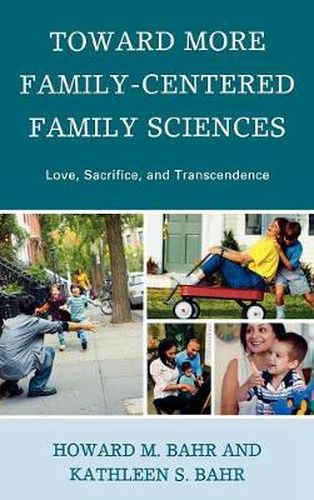Readings Newsletter
Become a Readings Member to make your shopping experience even easier.
Sign in or sign up for free!
You’re not far away from qualifying for FREE standard shipping within Australia
You’ve qualified for FREE standard shipping within Australia
The cart is loading…






Much academic writing on families reflects the ideal of non-involvement and distanced subject matter. Toward More Family-Centered Family Sciences suggests that the family sciences, in their effort to be scientific, have perpetuated this distance between researcher and subject, to the detriment of both. The authors argue that family and kinship ties are transcendent ties, boundary-crossing in numerous ways. They place an emphasis on family love, in contrast and in addition to romantic love, and criticize current approaches for neglecting the importance of transcendent concepts such as love, commitment, respect, and sacrifice in the development and well being of family structures.
Drawing from insights both inside and outside of academia, the authors seek to reincorporate transcendent concepts into the study of the family as a unit of society. They argue for a more collaborative, family-centered family science and offer recommendations for how family researchers might work to change the scientific monologue about families to a systemic dialogue with families.
$9.00 standard shipping within Australia
FREE standard shipping within Australia for orders over $100.00
Express & International shipping calculated at checkout
Much academic writing on families reflects the ideal of non-involvement and distanced subject matter. Toward More Family-Centered Family Sciences suggests that the family sciences, in their effort to be scientific, have perpetuated this distance between researcher and subject, to the detriment of both. The authors argue that family and kinship ties are transcendent ties, boundary-crossing in numerous ways. They place an emphasis on family love, in contrast and in addition to romantic love, and criticize current approaches for neglecting the importance of transcendent concepts such as love, commitment, respect, and sacrifice in the development and well being of family structures.
Drawing from insights both inside and outside of academia, the authors seek to reincorporate transcendent concepts into the study of the family as a unit of society. They argue for a more collaborative, family-centered family science and offer recommendations for how family researchers might work to change the scientific monologue about families to a systemic dialogue with families.